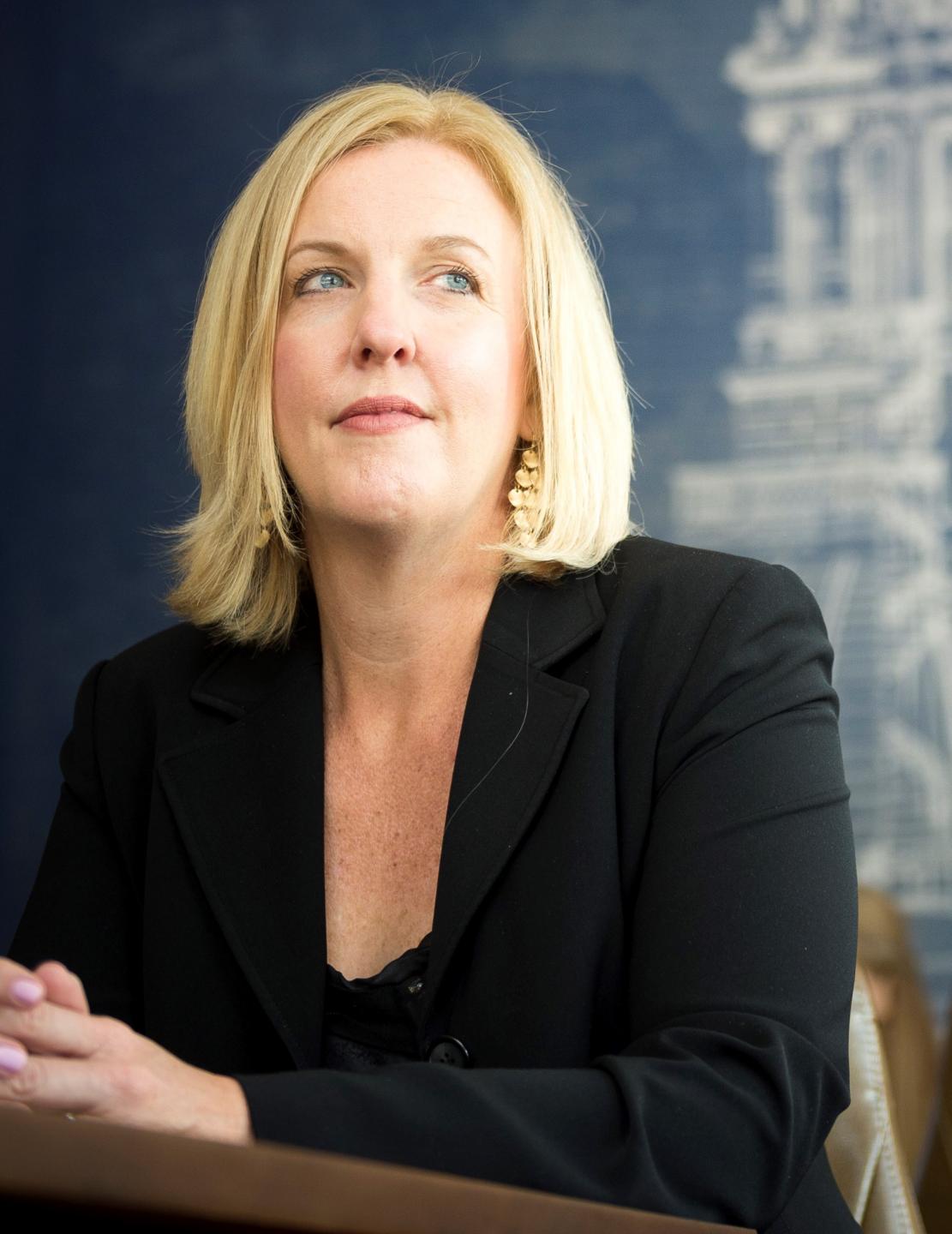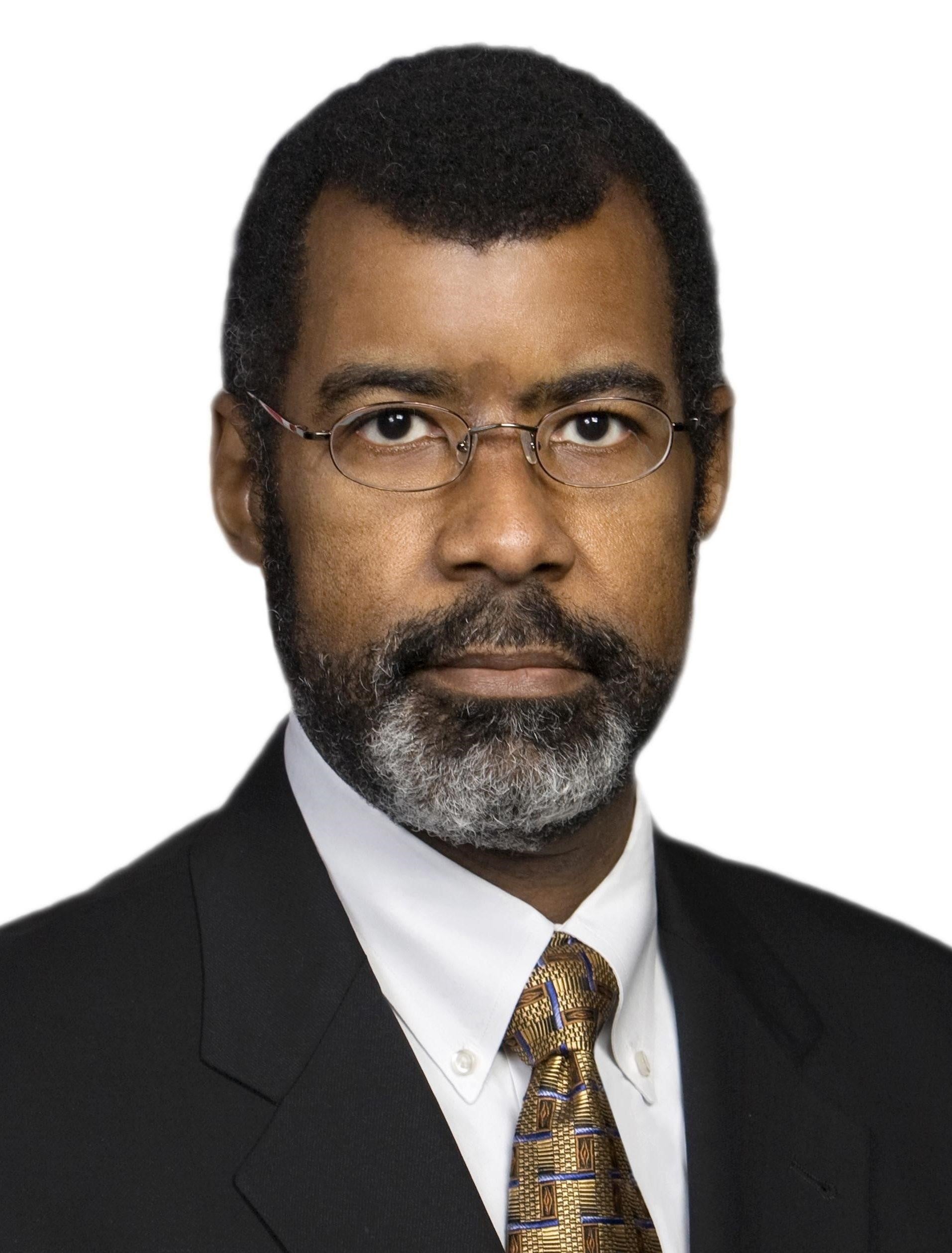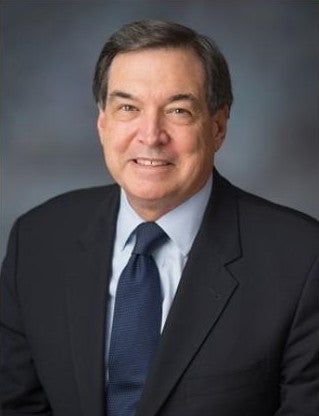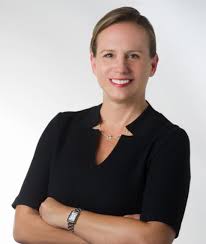Speakers
-

Abigail Ross Hopper
President & CEO
Abigail Ross Hopper is the President and CEO of the Solar Energy Industries Association, the national trade organization for America’s solar energy industries. She oversees all of SEIA’s activities, including government affairs, research, communications, and industry leadership, and is focused on creating a marketplace where solar will constitute a significant percentage of America’s energy generation.
Before joining SEIA, Abby was the Director of the Department of Interior’s Bureau of Ocean Energy Management, where she led the agency that oversaw the leasing and development of all offshore energy, from oil and natural gas to offshore wind.
She served formerly as the Director of the Maryland Energy Administration (MEA), serving as acting beginning in 2012, and then as Director starting in June 2013. She also served concurrently as Energy Advisor to Maryland Gov. Martin O’Malley since 2010. In those roles, she had significant engagement with the state’s electric distribution utilities on matters ranging from resiliency and reliability of the grid to multiple mergers of the state’s utilities.
Abby previously spent over two years as Deputy General Counsel with the Maryland Public Service Commission. Before embarking on a career in public service, Abby spent nine years in private practice.
Abby graduated Cum Laude from the University of Maryland School of Law and earned a Bachelor of Arts Degree from Dartmouth College.
Solar Energy Industries AssociationAbigail Ross Hopper is the President and CEO of the Solar Energy Industries Association, the national trade organization for America’s solar energy industries. She oversees all of SEIA’s activities, including government affairs, research, communications, and industry leadership, and is focused on creating a marketplace where solar will constitute a significant percentage of America’s energy generation.
Before joining SEIA, Abby was the Director of the Department of Interior’s Bureau of Ocean Energy Management, where she led the agency that oversaw the leasing and development of all offshore energy, from oil and natural gas to offshore wind.
She served formerly as the Director of the Maryland Energy Administration (MEA), serving as acting beginning in 2012, and then as Director starting in June 2013. She also served concurrently as Energy Advisor to Maryland Gov. Martin O’Malley since 2010. In those roles, she had significant engagement with the state’s electric distribution utilities on matters ranging from resiliency and reliability of the grid to multiple mergers of the state’s utilities.
Abby previously spent over two years as Deputy General Counsel with the Maryland Public Service Commission. Before embarking on a career in public service, Abby spent nine years in private practice.
Abby graduated Cum Laude from the University of Maryland School of Law and earned a Bachelor of Arts Degree from Dartmouth College.
-

John Wagner
Director of Idaho National Laboratory
Dr. John C. Wagner is the associate laboratory director of INL’s Nuclear Science & Technology (NS&T) directorate. His previous roles included director of Domestic Programs in NS&T as well as director of the Technical Integration Office for the DOE-NE Light Water Reactor Sustainability Program at INL. Wagner initially joined INL as the chief scientist at the Materials and Fuels Complex in 2016. He has more than 20 years of experience performing research, and managing and leading research and development projects, programs and organizations.
Wagner received a B.S. in nuclear engineering from the Missouri University of Science and Technology in 1992, and M.S. and Ph.D. degrees from the Pennsylvania State University in 1994 and 1997, respectively. Following graduate school, Wagner joined Holtec International as a principal engineer, performing criticality safety analyses and licensing activities for spent fuel storage pools and storage and transportation casks. Wagner joined the Oak Ridge National Laboratory (ORNL) as an R&D staff member in 1999, performing research in the areas of hybrid (Monte Carlo/deterministic) radiation transport methods, burnup credit criticality safety, and spent nuclear fuel characterization and safety.
While at ORNL, Wagner held various technical leadership positions, including technical lead for postclosure criticality in support of DOE OCRWM’s Lead Laboratory for Repository Systems, Radiation Transport Methods Deputy Focus Area lead for the Consortium for Advanced Simulation of Light Water Reactors (CASL), and national technical director of the DOE Office of Nuclear Energy’s Nuclear Fuels Storage and Transportation Planning Project. Wagner also held various management positions, including group leader for the Criticality and Shielding Methods and Applications, Radiation Transport, and Used Fuel Systems groups.
In 2014, Wagner became director of the Reactor and Nuclear Systems Division (RNSD), with responsibility for management direction and leadership to focus and integrate the seven RNSD R&D groups (Advanced Reactor Systems and Safety, Nuclear Data and Criticality Safety, Nuclear Security Modeling, Radiation Transport, Reactor Physics, Thermal Hydraulics and Irradiation Engineering, and Used Fuel Systems) and the Radiation Safety Information Computational Center.
Wagner is a Fellow of the American Nuclear Society and recipient of the 2013 E.O. Lawrence Award. He has authored or co-authored more than 170 refereed journal and conference articles, technical reports, and conference summaries. He was the original developer of the A3MCNP and ADVANTG codes and led the development of the CADIS and Forward-Weighted CADIS hybrid transport methods.
Dr. John C. Wagner is the associate laboratory director of INL’s Nuclear Science & Technology (NS&T) directorate. His previous roles included director of Domestic Programs in NS&T as well as director of the Technical Integration Office for the DOE-NE Light Water Reactor Sustainability Program at INL. Wagner initially joined INL as the chief scientist at the Materials and Fuels Complex in 2016. He has more than 20 years of experience performing research, and managing and leading research and development projects, programs and organizations.
Wagner received a B.S. in nuclear engineering from the Missouri University of Science and Technology in 1992, and M.S. and Ph.D. degrees from the Pennsylvania State University in 1994 and 1997, respectively. Following graduate school, Wagner joined Holtec International as a principal engineer, performing criticality safety analyses and licensing activities for spent fuel storage pools and storage and transportation casks. Wagner joined the Oak Ridge National Laboratory (ORNL) as an R&D staff member in 1999, performing research in the areas of hybrid (Monte Carlo/deterministic) radiation transport methods, burnup credit criticality safety, and spent nuclear fuel characterization and safety.
While at ORNL, Wagner held various technical leadership positions, including technical lead for postclosure criticality in support of DOE OCRWM’s Lead Laboratory for Repository Systems, Radiation Transport Methods Deputy Focus Area lead for the Consortium for Advanced Simulation of Light Water Reactors (CASL), and national technical director of the DOE Office of Nuclear Energy’s Nuclear Fuels Storage and Transportation Planning Project. Wagner also held various management positions, including group leader for the Criticality and Shielding Methods and Applications, Radiation Transport, and Used Fuel Systems groups.
In 2014, Wagner became director of the Reactor and Nuclear Systems Division (RNSD), with responsibility for management direction and leadership to focus and integrate the seven RNSD R&D groups (Advanced Reactor Systems and Safety, Nuclear Data and Criticality Safety, Nuclear Security Modeling, Radiation Transport, Reactor Physics, Thermal Hydraulics and Irradiation Engineering, and Used Fuel Systems) and the Radiation Safety Information Computational Center.
Wagner is a Fellow of the American Nuclear Society and recipient of the 2013 E.O. Lawrence Award. He has authored or co-authored more than 170 refereed journal and conference articles, technical reports, and conference summaries. He was the original developer of the A3MCNP and ADVANTG codes and led the development of the CADIS and Forward-Weighted CADIS hybrid transport methods.
-

William D. Magwood, IV
Director-General
Mr. Magwood took up his duties as Director-General of the Nuclear Energy Agency (NEA) on September 1, 2014. He has extensive experience in both the regulatory and developmental aspects of nuclear energy, including at the international level.
From 2010 to 2014, he served as one of the five Commissioners appointed by the US President and confirmed by the US Senate to the US Nuclear Regulatory Commission (NRC). While a commissioner, he advocated the importance of nuclear regulatory independence and the necessity of maintaining strong, credible and technically sound nuclear regulation in the United States and all countries that use nuclear power.
Prior to his appointment at the NRC, from 2005 to 2010 he provided independent strategic and policy advice to US and international clients on energy, environment, education, and technology policy issues. From 1998 to 2005, Mr. Magwood was Director of the US Government’s civilian nuclear energy program at the US Department of Energy (DOE). During his tenure, he established the Idaho National Laboratory; created activities that reversed the decline of US nuclear technology education; and launched important initiatives such as the Generation IV International Forum (GIF) and the US “Nuclear Power 2010,” which helped restart nuclear plant construction in the United States. He was also actively involved in the work of the NEA, serving as a Steering Committee Bureau member from 1999 to 2005, including a term as Chair of the Steering Committee from 2004 to 2005.
Prior to his experience at the DOE, Mr. Magwood managed electric utility research and nuclear policy programs at the Edison Electric Institute in Washington, DC, and was a scientist at Westinghouse Electric Corporation in Pittsburgh, Pennsylvania. Mr. Magwood holds Bachelor degrees in Physics and English from Carnegie Mellon University and a Master of Fine Arts from the University of Pittsburgh.
OECD Nuclear Energy AgencyMr. Magwood took up his duties as Director-General of the Nuclear Energy Agency (NEA) on September 1, 2014. He has extensive experience in both the regulatory and developmental aspects of nuclear energy, including at the international level.
From 2010 to 2014, he served as one of the five Commissioners appointed by the US President and confirmed by the US Senate to the US Nuclear Regulatory Commission (NRC). While a commissioner, he advocated the importance of nuclear regulatory independence and the necessity of maintaining strong, credible and technically sound nuclear regulation in the United States and all countries that use nuclear power.
Prior to his appointment at the NRC, from 2005 to 2010 he provided independent strategic and policy advice to US and international clients on energy, environment, education, and technology policy issues. From 1998 to 2005, Mr. Magwood was Director of the US Government’s civilian nuclear energy program at the US Department of Energy (DOE). During his tenure, he established the Idaho National Laboratory; created activities that reversed the decline of US nuclear technology education; and launched important initiatives such as the Generation IV International Forum (GIF) and the US “Nuclear Power 2010,” which helped restart nuclear plant construction in the United States. He was also actively involved in the work of the NEA, serving as a Steering Committee Bureau member from 1999 to 2005, including a term as Chair of the Steering Committee from 2004 to 2005.
Prior to his experience at the DOE, Mr. Magwood managed electric utility research and nuclear policy programs at the Edison Electric Institute in Washington, DC, and was a scientist at Westinghouse Electric Corporation in Pittsburgh, Pennsylvania. Mr. Magwood holds Bachelor degrees in Physics and English from Carnegie Mellon University and a Master of Fine Arts from the University of Pittsburgh.
-

Jon Wellinghoff
Former Chair
Jon Wellinghoff is CEO and Founder at Grid Policy, Inc. which enables the intersection of policy and distributed energy technologies, helping energy tech companies get to market and expand markets by addressing critical policy barriers to business success. He was formerly Chief Policy Officer at SolarCity and oversaw regulatory and legislative affairs on federal and state policy for the company. Jon was the longest serving Chairman of the Federal Energy Regulatory Commission (FERC/2009-2013), where he was known for his international expertise and thought leadership in energy policy, electric markets and the interface of disruptive energy systems with traditional utility structures. During this time, Jon worked to formulate new policies and rules to improve electric market efficiency and integrate new disruptive energy resources into wholesale energy markets.
Prior to joining SolarCity, Jon served as partner at the law firm Stoel Rives, where he provided knowledge and experience in energy law and the development of clean energy technology, consulting on energy policy with leaders in the U.S., China, Australia and Europe. While at Stoel Rives, Jon represented clients in emerging energy technology fields including energy storage, demand response, big energy data analytics and distributed generation.
Jon holds a Bachelor of Science degree in mathematics from University of Nevada, a Master of Science degree in teaching mathematics from Howard University and a Juris Doctor degree from Antioch School of Law.
Federal Energy Regulatory CommissionJon Wellinghoff is CEO and Founder at Grid Policy, Inc. which enables the intersection of policy and distributed energy technologies, helping energy tech companies get to market and expand markets by addressing critical policy barriers to business success. He was formerly Chief Policy Officer at SolarCity and oversaw regulatory and legislative affairs on federal and state policy for the company. Jon was the longest serving Chairman of the Federal Energy Regulatory Commission (FERC/2009-2013), where he was known for his international expertise and thought leadership in energy policy, electric markets and the interface of disruptive energy systems with traditional utility structures. During this time, Jon worked to formulate new policies and rules to improve electric market efficiency and integrate new disruptive energy resources into wholesale energy markets.
Prior to joining SolarCity, Jon served as partner at the law firm Stoel Rives, where he provided knowledge and experience in energy law and the development of clean energy technology, consulting on energy policy with leaders in the U.S., China, Australia and Europe. While at Stoel Rives, Jon represented clients in emerging energy technology fields including energy storage, demand response, big energy data analytics and distributed generation.
Jon holds a Bachelor of Science degree in mathematics from University of Nevada, a Master of Science degree in teaching mathematics from Howard University and a Juris Doctor degree from Antioch School of Law.
-

Jennifer Fordham
Energy Market Strategist
Jennifer Fordham is an Energy Market Strategist in Independent Consulting. She is the former senior vice president of government affairs for the Natural Gas Supply Association (NGSA). She joined NGSA in 2005. As senior vice president, government affairs, Jennifer directed the association’s competitive energy market policy advocacy. She represented the association with the administration, the Federal Energy Regulatory Commission (FERC), the Commodity Futures Trading Commission (CFTC), U.S. Congress, media, industry and the public, serving as a spokeswoman for the association on energy market issues.
Fordham’s diverse 29-year energy career provides the commercial relevance that is characteristic her work. Prior to joining NGSA, Fordham led the state and regulatory affairs team for Washington Gas Light Company (WGL), the natural gas utility serving the Washington, DC metropolitan area; held a seat on the WGL Political Action Committee Board of Directors; and was a fuels consultant for Pace Global Energy Services. Fordham’s expertise is further augmented by her investor relations and financial planning experience for NiSource, Inc.’s predecessor, Columbia Energy Group. Her experience negotiating energy contracts, working with investors on energy project valuation and implementing corporate compliance standards for market behavior rules make her insights distinctive.
Jennifer specializes in creating long-term strategic partnerships that broaden policymaker support for commercially significant positions. Fordham created the first “agriculture and energy” partnership, NGSA and the National Corn Growers Association, credited with securing the end user protections in Dodd-Frank financial reform legislation and recognized in CEO Update. Jennifer’s work established the association as an industry leader on CFTC Dodd-Frank implementation advocacy often covered by S&P Platts Gas Daily and Energy Risk magazine.
Fordham graduated cum laude from Shepherd University where she received a Bachelor of Science degree in economics and political science. She is a 2017 graduate of the Women In Technology Leadership Foundry, is a National Association of Corporate Directors Governance Fellow and recently completed the Harvard Kennedy School Executive Education class Leadership Decision Making. She sits on the board of directors for the Washington D.C. Chapter of the Women’s Energy Network and is an Advocate Member of the Committee of Chief Risk Officers.
Independent ConsultingJennifer Fordham is an Energy Market Strategist in Independent Consulting. She is the former senior vice president of government affairs for the Natural Gas Supply Association (NGSA). She joined NGSA in 2005. As senior vice president, government affairs, Jennifer directed the association’s competitive energy market policy advocacy. She represented the association with the administration, the Federal Energy Regulatory Commission (FERC), the Commodity Futures Trading Commission (CFTC), U.S. Congress, media, industry and the public, serving as a spokeswoman for the association on energy market issues.
Fordham’s diverse 29-year energy career provides the commercial relevance that is characteristic her work. Prior to joining NGSA, Fordham led the state and regulatory affairs team for Washington Gas Light Company (WGL), the natural gas utility serving the Washington, DC metropolitan area; held a seat on the WGL Political Action Committee Board of Directors; and was a fuels consultant for Pace Global Energy Services. Fordham’s expertise is further augmented by her investor relations and financial planning experience for NiSource, Inc.’s predecessor, Columbia Energy Group. Her experience negotiating energy contracts, working with investors on energy project valuation and implementing corporate compliance standards for market behavior rules make her insights distinctive.
Jennifer specializes in creating long-term strategic partnerships that broaden policymaker support for commercially significant positions. Fordham created the first “agriculture and energy” partnership, NGSA and the National Corn Growers Association, credited with securing the end user protections in Dodd-Frank financial reform legislation and recognized in CEO Update. Jennifer’s work established the association as an industry leader on CFTC Dodd-Frank implementation advocacy often covered by S&P Platts Gas Daily and Energy Risk magazine.
Fordham graduated cum laude from Shepherd University where she received a Bachelor of Science degree in economics and political science. She is a 2017 graduate of the Women In Technology Leadership Foundry, is a National Association of Corporate Directors Governance Fellow and recently completed the Harvard Kennedy School Executive Education class Leadership Decision Making. She sits on the board of directors for the Washington D.C. Chapter of the Women’s Energy Network and is an Advocate Member of the Committee of Chief Risk Officers.